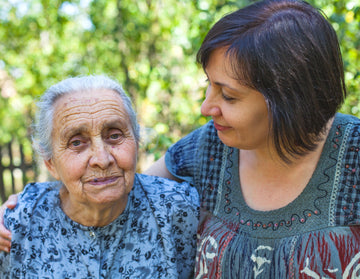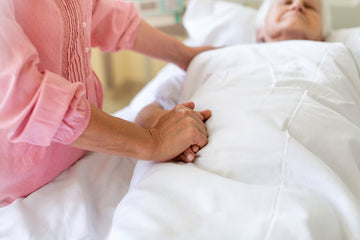
Bedsores or pressure ulcers develop in bedridden patients or patients who are immobilized for a long period and are unable to change their position. Bedsores are pressure injuries to the skin and underlying tissues that occur most commonly over bony prominences, such as the hips and heels as a result of pressure and shear forces. They cause pain, discomfort, and longer hospital stays. They vary from superficial tissue damage to deep ulcers going right up to the muscle and bone.
Bedsores affect the quality of life of the patient & the caregiver.
Studies have revealed that bedsores affect the quality of life in about 91% of patients. Bedsores affect patients emotionally, mentally, physically, and socially. Younger people with bedsores are more likely to have negative emotions related to their ulcers and greater problems with their mobility than older individuals.
When pressure sores or bedsore is present for 6 months or more, the patient may become pessimistic and depressed. This may affect the individuals compliance with therapy, nutrition, and healing.
Patients often become ANGRY and have the question WHY did this happen to me? Their anger could be self-directed or directed at the caregivers and family members. Patients need hope that the ulcer will heal, the pain, odor, and treatments will end, and that they will eventually regain their former normal lives.
Factors affecting the quality of life of the patient with bedsores

A patient with bedsores has to deal with pain and suffering. Pain is associated with bedsores as well as with dressing changes. Odor and drainage, and clothing limitations can have a negative impact on the life of the patient.
Bedsores affect activities of daily life and functioning, feeling of well-being, and impact occupational, psychosocial, and social aspects of life. Patients may feel embarrassed to have their family members change their clothes or dress their wounds. Relationships get impacted under such circumstances. The fear of the occurrence of more bedsores is another dilemma the patients have to deal with.
Factors affecting the quality of life of caregivers
Once at home, family members may be required to change the dressing of the patient. The impact on one's finances can be significant too, particularly if one must misses work on a long-term basis. In addition, the cost of inpatient and outpatient care can be significant. The caregivers often feel guilty and sad when they see the pain their loved ones have to undergo every day.
Thus, the impact of bedsores on quality of life is tremendous, ongoing, and unique for each individual and his/ her caregiver.
Preventing new bedsores from developing
The caregiver can be vigilant and can help prevent the development of new bedsores. This may also boost the morale and confidence of both the patient and the caregiver.
A few tips to prevent bedsores and improve the quality of life of a patient with bedsores.

- Change the position of an immobile or bedridden patient frequently to avoid pressure on the skin and underlying tissues.
- Check the skin for signs of developing bedsores or pressure ulcers frequently.
- Use specialty bedding or similar materials to reduce pressure
- Keep the skin dry, clean, and moisturized.
- Ensure a healthy diet intake tailored for each patients needs.
- Keep the blood sugar under control in patients with diabetes.
- Apply a barrier cream like Soreze to protect the skin against friction, moisture, and irritation.



